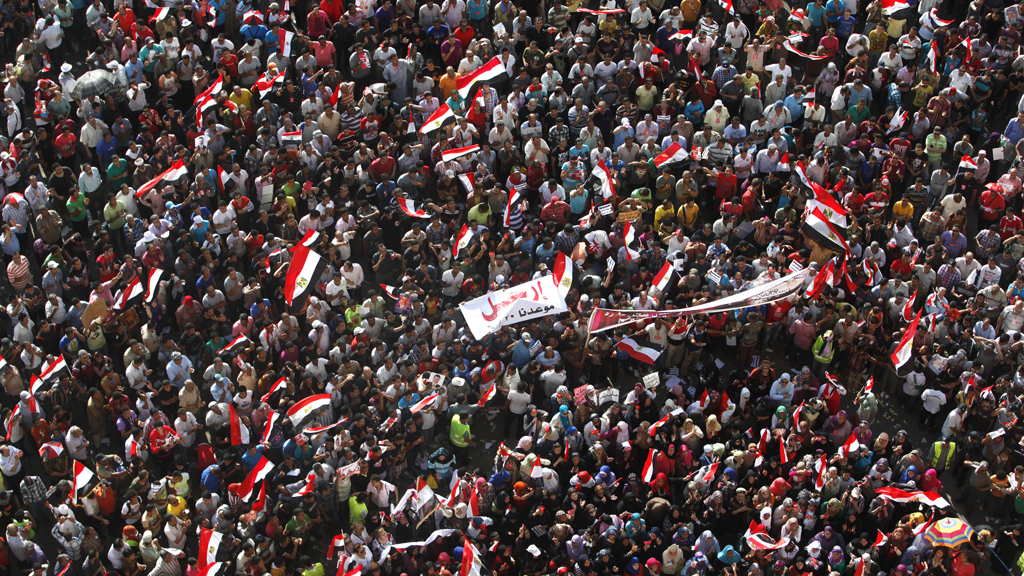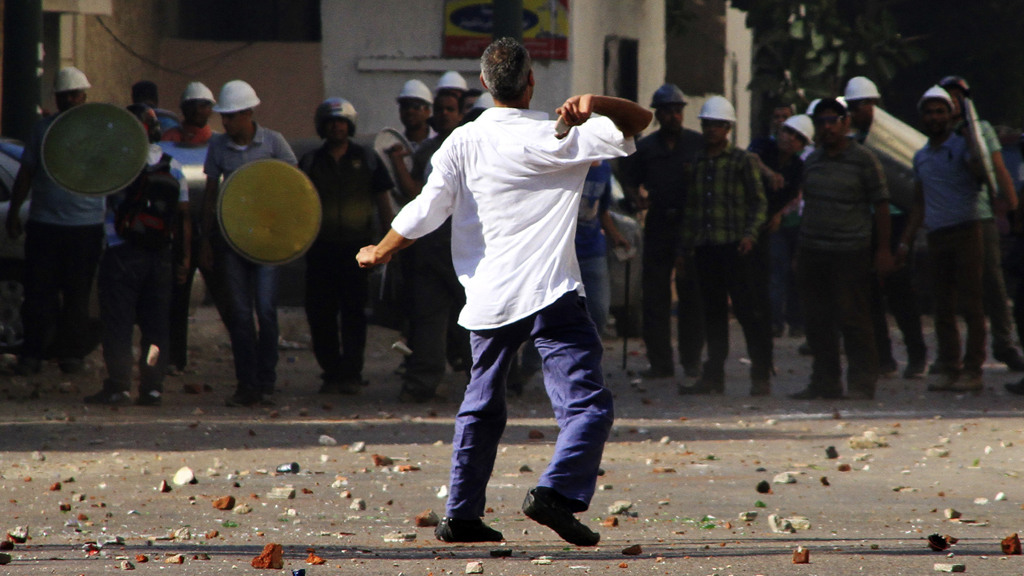Clerics warn of ‘civil war’ as Egypt erupts into violence
Clerics warn of a “civil war”, and the army says it may have to intervene, as opponents and supporters of President Mohamed Mursi clash violently across Egypt.
At least three people have been killed in clashes, including one American student, and protestors have attacked eight offices of Egypt’s ruling poltiical party the Muslim Brotherhood.
The violence is adding to tensions ahead of a mass rally on Sunday, the anniversary of President Mursi’s inauguration, at which protestors will call for the post-Arab Spring leader to depart.
We must be alert lest we slide into a civil war. Senior cleric Sheikh Hassan al-Shafie
Officials say more than 70 people have been injured in the violence, and hundreds of thousands of people have taken to the streets – including thousands packing Cairo’s Tahrir Square with banners calling for President Mursi to “leave” (picture, below). Thousands of Mursi supporters have rallied to counter the demonstrations.
Two people were killed in an attack on a Muslim Brotherhood building in Alexandria – with protestors storming the building and lighting fires. One person was shot dead.
Conflicting reports have suggested an American student, named as 21-year-old Andrew Pochter, died from either a gunshot wound or from being stabbed.

A third man was killed in Port Said, and 10 were injured, in what is believed to be an explosion during a protest.
In the city of Tanta, four men, believed to be Morsi supporters, are said to have tried to attack a mosque preacher during his sermon.
The United Nations, European Union and United States have appealed for restraint and urged Egypt’s political leaders to step back from a confrontation that it is feared could threaten the democracy that emerged from the revolution of 2011.
The Muslim Brotherhood warned of “dire consequences” and “a violent spiral of anarchy”, and accused liberal leaders, including former UN diplomat Mohamed ElBaradei, of personally inciting violence. Mr ElBaradei has condemned the violence (see tweet, below).
I strongly condemn violence in all forms against people irrespective of their beliefs or identity. The more peaceful, the stronger we become
— Mohamed ElBaradei (@ElBaradei) June 28, 2013
President Mursi has offered to talk with the opposition ahead of Sunday’s rally.
‘Civil war’
Cairo’s ancient al-Azhar institute in Cairo, one of the leading relgious institutions in the country, warned that the violence could spiral out of control.
“We must be alert lest we slide into a civil war that does not differentiate between supporters and opponents,” warned Sheik Hassan al-Shafie, a senior cleric at al-Azhar.
In a statement, which was broadly supportive of President Mursi, al-Azhar clerics backed his calls for dialogue and blamed the violence on “criminal gangs”.

The army has warned it will intervene if there is violence in order to defend the “will of the people”.The army was instrumental in the fall of Egyptian dictator Hosni Mubarak, and both the opposition and the government believe they could receive the military’s support.
UN chief Ban Ki-moon urged Egyptians to respect “universal principles of peaceful dialogue”. European Union foreign policy chief Catherine Ashton called for peaceful protests, building trust and a “spirit of dialogue and tolerance”.
The US embassy said in a statement it was evacuating non-essential staff and family members and renewed a warning to Americans not to travel to Egypt unless they had to.